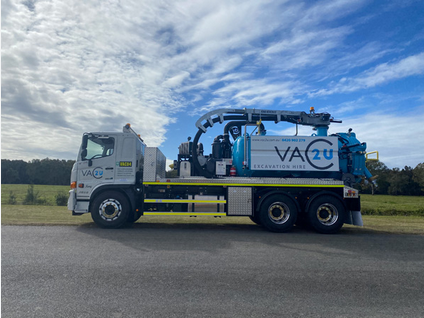Introduction
Construction sites are often filled with underground utilities, pipes, and cables. To avoid damaging these underground utilities during construction, excavation is often necessary. Traditional excavation methods such as hand digging and mechanical excavation can be time-consuming, labor-intensive, and can cause significant damage to the surrounding area. Vacuum excavation is an alternative method that has been gaining popularity in recent years. This method involves using high-pressure air or water to break up the soil, which is then removed using a vacuum system. In this article, we will discuss the advantages of vacuum excavation hire for your construction site.
Advantages of Vacuum Excavation
- Increased Safety
One of the main advantages of vacuum excavation is that it is a safer method of excavation compared to traditional methods. Traditional excavation methods can cause damage to underground utilities, which can lead to gas leaks, electrical hazards, and other dangerous situations. Vacuum excavation, on the other hand, is a non-destructive method that uses air or water to break up the soil, making it less likely to cause damage to underground utilities. This makes it a safer option for construction workers and the general public.
- Time and Labor Savings
Vacuum excavation is a much faster and more efficient method of excavation compared to traditional methods. With vacuum excavation, the soil can be removed much faster than with traditional methods, saving time and labor costs. Additionally, the vacuum system can be operated by just one or two people, which can significantly reduce labor costs.
- Reduced Environmental Impact
Vacuum excavation has a lower environmental impact compared to traditional excavation methods. Traditional excavation methods can cause significant damage to the surrounding area, such as soil erosion, disruption of wildlife habitats, and contamination of water sources. Vacuum excavation, on the other hand, is a non-destructive method that causes minimal disruption to the surrounding area. This makes it a more environmentally friendly option for construction sites.
- Increased Accuracy
Vacuum excavation is a more accurate method of excavation compared to traditional methods. Traditional excavation methods can cause damage to underground utilities, which can lead to inaccurate mapping and identification of these utilities. Vacuum excavation, on the other hand, is a non-destructive method that allows for more accurate mapping and identification of underground utilities. This can help to prevent future damage to these utilities and reduce the risk of accidents.
- Versatility
Vacuum excavation is a versatile method of excavation that can be used in a variety of situations. It can be used for digging trenches, potholing, and locating underground utilities. It can also be used in areas where traditional excavation methods are not possible, such as in areas with limited access or in environmentally sensitive areas.
FAQs
Q: Is vacuum excavation more expensive than traditional excavation methods?
A: Vacuum excavation can be more expensive than traditional excavation methods, but it can also be more cost-effective in the long run. The time and labor savings, as well as the reduced environmental impact, can offset the initial cost.
Q: Can vacuum excavation be used in all types of soil?
A: Vacuum excavation can be used in most types of soil, but it may not be suitable for certain types of hard or compacted soil. In these cases, mechanical excavation may be necessary.
Q: Is vacuum excavation safe for underground utilities?
A: Vacuum excavation is a non-destructive method of excavation that is safer for underground utilities compared to traditional excavation methods. However, it is still important to exercise caution and follow proper safety procedures to avoid damaging underground utilities.
Conclusion
Vacuum excavation is a safe, efficient, and environmentally friendly method of excavation that offers numerous advantages over traditional excavation methods. It is a versatile method that can be used in a variety of situations, and it is a more accurate method of excavation that can help prevent future damage to underground utilities.





Comments